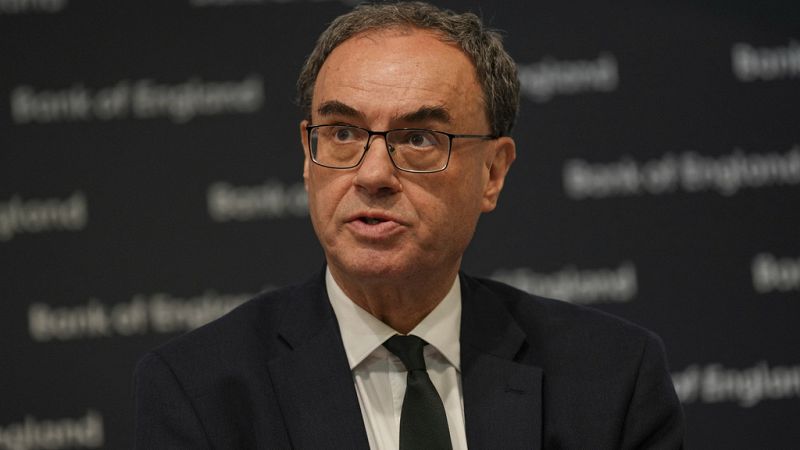
As widely anticipated, the Bank of England (BoE) decided to keep its benchmark rate at a 2-year low of 4.25% on Thursday.
This comes as fears grow that the conflict between Israel and Iran will escalate and that US tariffs will further fuel inflation.
Six out of the nine-member panel of the monetary policy committee voted to hold, while three of them saw fit to cut.
The bank lowered its rate to 4.25% in May, the fourth cut after an aggressive tightening period in 2022-2023. More cuts are still expected in the coming months by the market.
The central bank's benchmark interest rate determines how banks change their rates on savings and loans.
UK inflation, the primary figure driving the monetary policy committee’s decisions, came in at 3.4% on Wednesday, far above the BoE’s 2% target. Price increases, however, slowed slightly compared to the annual price change measured in April, which stood at 3.5%.
The prevailing view at the bank was that inflation would remain elevated over the coming months but start to slow towards next year.
But an uptick in oil prices, due to the current geopolitical crisis between Israel and Iran, could change this, as energy prices translate into the costs of producing and transporting all other goods.
“The risk to energy prices has clearly intensified and moved up the agenda given developments in the Middle East,” Sandra Horsfield, an economist for Investec, told AP.
Uncertainty over the level of tariffs US President Donald Trump will impose around the world is also clouding the outlook for prices across the globe.
“We are still awaiting the full impact of Donald Trump’s tariffs to show up in the prices of goods. We are approaching the end of the 90-day pause on reciprocal tariffs, and what happens from there is really anyone’s guess,” Lindsay James, investment strategist at Quilter said.
She added that even with the US-UK trade deal, the raft of tariffs on other nations would likely be felt in some form in the UK too. This will especially be the case if the UK’s biggest trading partner Europe leaves the table with no agreement.
While setting their focus on inflationary risks, the BoE also need to consider that growth in the UK economy is slow and could benefit from lower interest rates. In April, economic output sank by 0.3%, due to falling exports to the US and higher costs for businesses, including a tax raise.
"The expectation is the UK economy will stagnate again in the second half, making the need for rate cuts more prominent," James said. "But with risks on the global stage not only uncertain but also substantial, the mantra of rates being ‘higher for longer’ will continue.”







